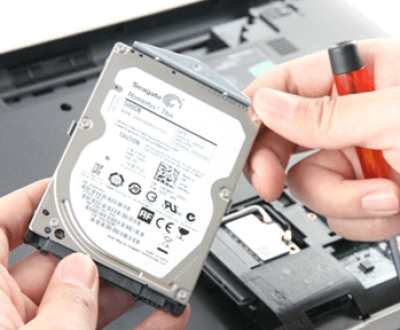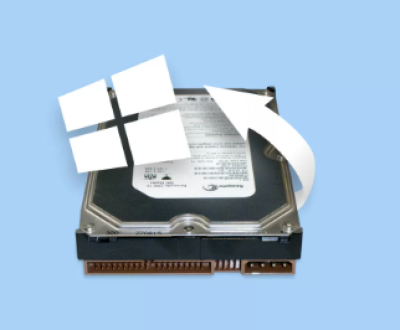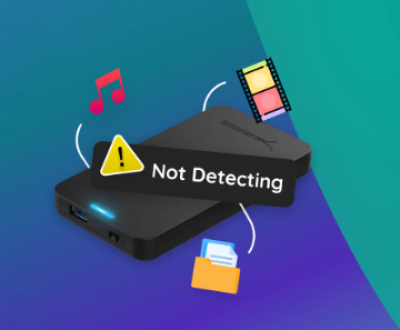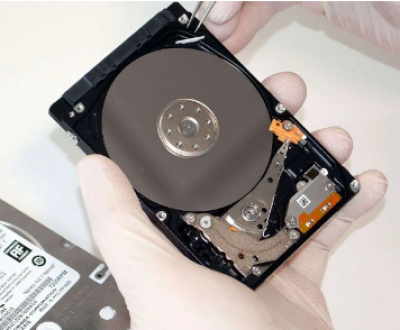If you’re in Sacramento, CA, and facing hard drive issues, this guide provides detailed insights into the hard drive recovery process, local service providers, and preventative measures to safeguard your data.
Hard Drive Data Loss
Before exploring recovery options, it’s essential to understand the common causes of hard drive data loss.
1. Types of Data Loss
Logical Failures: These occur due to software issues such as corrupted file systems, virus infections, accidental deletions, or formatting errors. Logical failures usually allow for better recovery chances since the physical drive remains intact.
Physical Failures: These stem from hardware problems like mechanical failure, damaged read/write heads, or electronic failures due to power surges. Recovery from physical failures is more complex and typically requires specialized equipment and expertise.
Firmware Corruption: Firmware is the software that controls hard drive functions. If this becomes corrupted, it can lead to inaccessibility of data, requiring specific recovery techniques.
External Damage: Events such as fire, water damage, or physical impact can cause both logical and physical damage, complicating recovery efforts.
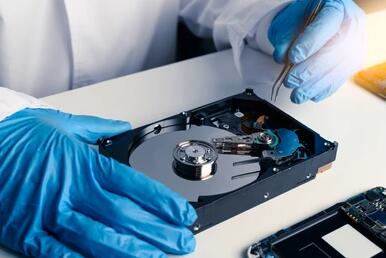
2. Signs of Hard Drive Failure
Identifying signs of hard drive failure early can help in taking corrective actions before data loss occurs. Common symptoms include:
Strange noises (clicking, grinding)
Frequent crashes or system freezes
Files becoming inaccessible or corrupted
The operating system failing to recognize the drive
Unexpected errors when trying to open files
3. DIY Recovery vs. Professional Services
While some may consider DIY recovery options using software tools, caution is advised. Attempting recovery without the right knowledge or tools can lead to permanent data loss, especially in the case of physical failures. Professional data recovery services are equipped to handle complex issues and provide a higher success rate in recovering lost data.
The Data Recovery Process
Professional data recovery involves a series of steps designed to retrieve lost files. Here’s a comprehensive breakdown:
1. Initial Assessment and Diagnosis
Upon contacting a recovery service, the first step is usually a diagnostic evaluation. This assessment identifies the type of failure (logical or physical) and determines the best recovery approach.
Many companies offer free diagnostic evaluations to provide clients with an understanding of the issue and potential costs.
2. Logical Recovery
For logical failures, technicians utilize specialized software to scan the drive for recoverable data. This process involves:
Scanning the file system for lost partitions or deleted files
Utilizing algorithms to rebuild the directory structure and recover files
Extracting data and saving it to a secure location
3. Physical Recovery
Physical recovery is more complex and typically takes place in a controlled environment (cleanroom). The process generally includes:
Opening the hard drive in a cleanroom to prevent contamination
Diagnosing the extent of physical damage and replacing faulty components if necessary
Cloning the drive to a functional hard drive to extract data without further risk
4. Verification and Data Integrity Check
After recovery, technicians verify the integrity of the recovered data. They check files to ensure they are uncorrupted and functional.
You will receive a report detailing the recovery process and what files were successfully retrieved.
5. Data Delivery
Finally, the recovered data is provided to you, typically on a new storage device or through secure online transfer, ensuring your data remains safe throughout the process.
Data Recovery Services in Sacramento
Sacramento boasts a variety of professional data recovery services capable of handling different types of data loss situations. Here are some of the most reputable options available:
1. Data Recovery Services
Overview: A local leader in the data recovery industry, Data Recovery Services specializes in both logical and physical recovery for a wide range of storage devices.
Services: They offer recovery from hard drives, SSDs, RAID arrays, and other media. Their team is experienced in handling various file systems and types of data loss.
Pricing: Data Recovery Services provides free diagnostics and upfront quotes based on the complexity of the recovery.
2. Secure Data Recovery
Overview: Secure Data Recovery is a nationally recognized service with a strong presence in Sacramento. They are known for their advanced technology and high success rates.
Services: Their services encompass hard drive recovery, RAID recovery, SSD recovery, and recovery from mobile devices. They operate in certified ISO 4 Class 10 cleanrooms, ensuring optimal conditions for physical data recovery.
Pricing: Secure Data Recovery offers free evaluations, and they maintain a no-data, no-fee policy, ensuring customers only pay for successful recoveries.
3. Drive Savers Data Recovery
Overview: Drive Savers is another well-respected provider in the field, known for its innovative recovery techniques and excellent customer service.
Services: They handle all types of data recovery, including hard drive failures, accidental deletions, and physical damage. Their experienced technicians utilize a combination of proprietary tools and software to achieve high recovery rates.
Pricing: Drive Savers provides free evaluations and transparent pricing with no hidden fees, allowing you to understand costs before proceeding.
4. Panda Assistant
Overview: Panda Assistant specializes in data recovery for both personal and business needs. Their local Sacramento office is equipped to handle various data loss scenarios.
Services: Their services include recovery from hard drives, RAID systems, SSDs, and USB drives. They also provide forensic data recovery services for legal and investigative purposes.
Pricing: SalvageData offers free diagnostics and a no-obligation quote to help you make informed decisions about recovery.
5. iFixScreens
Overview: iFixScreens is primarily a repair service but also offers data recovery solutions for hard drives and other devices. Their knowledgeable technicians are experienced in dealing with various data loss situations.
Services: They handle logical and minor physical damage cases, offering recovery services for hard drives, SSDs, and mobile devices.
Pricing: iFixScreens provides free estimates and competitive pricing, making them a budget-friendly option for data recovery.
Factors to Consider When Choosing a Data Recovery Service
When selecting a data recovery service in Sacramento, keep the following factors in mind:
1. Experience and Reputation
Choose a service with a proven track record in the industry. Look for customer reviews and testimonials to gauge the quality of their services.
2. Certifications and Cleanroom Standards
Verify that the company operates in an ISO-certified cleanroom environment, particularly for physical recovery. This is essential to prevent contamination and ensure successful recovery.
3. Transparency in Pricing
Look for services that offer free diagnostics and clear, upfront pricing without hidden fees. A reliable service should provide an estimate before starting the recovery process.
4. No-Recovery, No-Fee Policy
Opt for companies that offer a no-data, no-fee policy, ensuring you won’t incur charges if your data cannot be recovered.
5. Turnaround Time
Consider how quickly you need your data recovered. Some providers offer expedited services for urgent situations, though these may come at an additional cost.
6. Data Security and Confidentiality
Ensure that the data recovery service has strict security measures to protect your sensitive information during the recovery process. Look for companies that adhere to data protection regulations and confidentiality agreements.
Preventing Future Data Loss
While professional data recovery services are invaluable, taking proactive steps to prevent data loss is essential. Here are some effective strategies:
1. Regular Backups
Implement a robust backup strategy to safeguard your data. Use external hard drives, cloud storage, or network-attached storage (NAS) solutions to create regular backups of your important files.
2. Use Surge Protectors
Protect your devices from power surges and outages by using surge protectors and uninterruptible power supplies (UPS). This can help prevent damage from electrical issues.
3. Install Reliable Antivirus Software
Protect your computer from malware and viruses that can corrupt files by using reputable antivirus software. Regularly update your software to ensure maximum protection.
4. Monitor Drive Health
Many hard drives come equipped with SMART (Self-Monitoring, Analysis, and Reporting Technology) systems that can alert you to potential issues. Regularly check the health of your drives to catch problems early.
5. Handle Devices with Care
Physical damage is a common cause of data loss. Handle your hard drives and other storage devices carefully, avoiding drops, impacts, and exposure to extreme conditions.
About us and this blog
Panda Assistant is built on the latest data recovery algorithms, ensuring that no file is too damaged, too lost, or too corrupted to be recovered.
Request a free quote
We believe that data recovery shouldn’t be a daunting task. That’s why we’ve designed Panda Assistant to be as easy to use as it is powerful. With a few clicks, you can initiate a scan, preview recoverable files, and restore your data all within a matter of minutes.
Subscribe to our newsletter!
More from our blog
See all postsRecent Posts
- How to recover data from portable hard drive 2025-07-10
- How to recover data from a broken hard drive 2025-07-10
- How do i recover files from a formatted hard drive 2025-07-10

 Try lt Free
Try lt Free Recovery success rate of up to
Recovery success rate of up to

